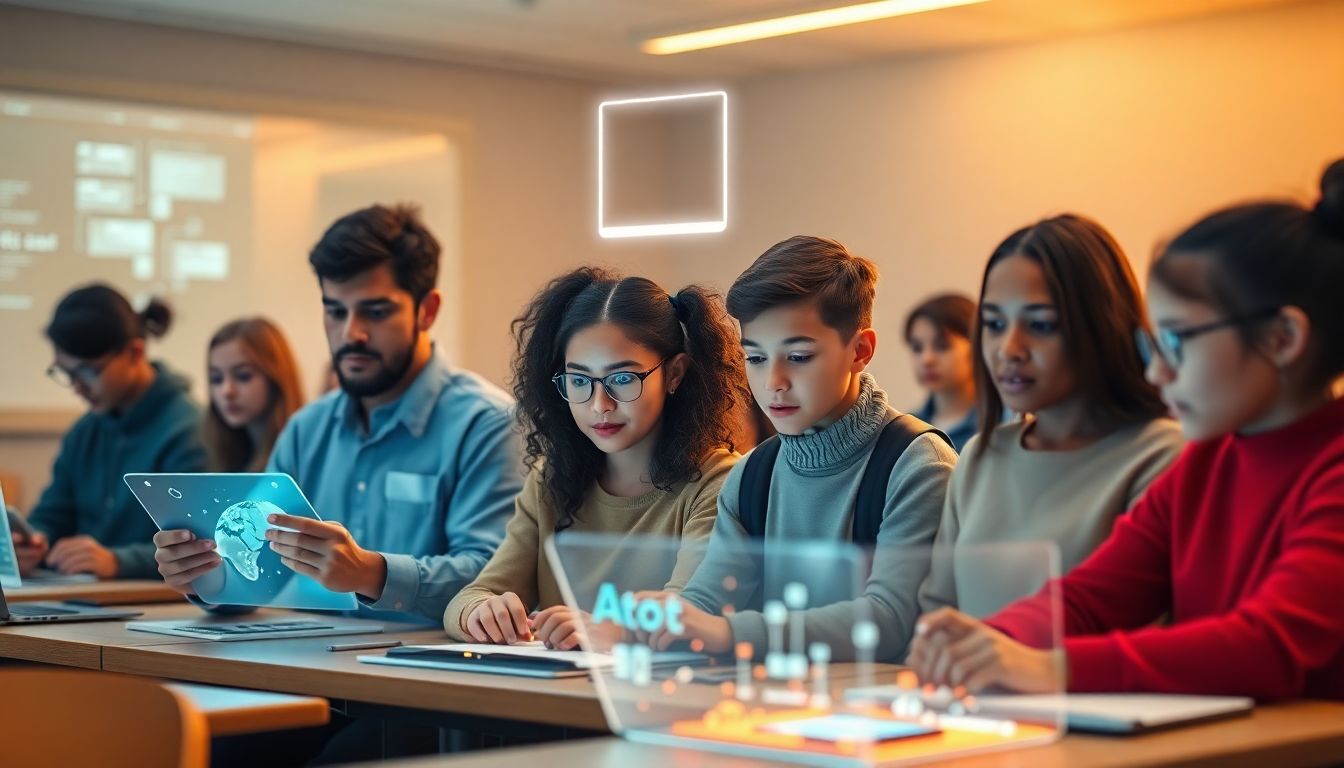- Get link
- X
- Other Apps
- Get link
- X
- Other Apps
Revolutionizing Education: The Impact of Artificial Intelligence

AI is reshaping education in amazing ways. As technology evolves, so does the role of artificial intelligence in schools. This change is not just about new tools; it’s about finding better ways to teach and learn.
The Current State of Education: Challenges and Opportunities
Today's education system faces several challenges, such as:
Large Class Sizes: Teachers often struggle to attend to each student's needs.
Standardized Testing: One-size-fits-all approaches can overlook individual talents.
Resource Limitations: Many schools lack the technology to support diverse learning needs.
However, opportunities lie ahead:
Integration of tech tools can make learning more engaging.
AI can provide insights to create better educational strategies.
The Promise of AI: Personalized Learning and Beyond
AI offers unique solutions. Imagine a classroom where each student gets a learning experience fit just for them.
Thesis Statement: AI's potential to revolutionize education, addressing key challenges and unlocking new possibilities.
Personalized Learning Experiences Through AI
Adaptive Learning Platforms: Tailoring Education to Individual Needs
Adaptive learning platforms adjust to how students learn. These tools can change the curriculum based on progress, ensuring no one is left behind.
AI-Powered Tutoring Systems: Providing Personalized Support and Feedback
AI tutoring can guide students in real-time, offering help just when they need it. It’s like having a personal coach for every subject!
Examples of Successful AI-driven Personalized Learning Initiatives
Knewton: Uses algorithms to customize learning paths.
DreamBox: Adapts math lessons based on student interactions.
Enhancing Accessibility and Inclusivity with AI
AI-driven Translation and Communication Tools: Breaking Down Language Barriers
Language should not be a barrier to learning. AI tools can translate materials instantly, helping non-native speakers.
Assistive Technologies Powered by AI: Catering to Diverse Learning Styles and Needs
From speech-to-text software to AI reading assistants, these tools help students with various learning challenges.
Case Studies: AI's Impact on Inclusive Education Practices
Schools using AI to design lessons for students with special needs see improved engagement and learning outcomes.
Automating Administrative Tasks for Educators
AI-powered Grading and Assessment Tools: Streamlining Workflow for Teachers
Grading can be time-consuming. AI tools can quickly evaluate assignments and provide feedback, allowing teachers to focus more on teaching.
Automated Scheduling and Resource Management: Freeing Up Teacher Time
AI can help manage schedules, ensuring that teachers can spend time on what matters most—educating students.
Data-driven Insights for Improved Educational Strategies
AI analyzes data to reveal trends, helping educators address issues before they become major problems.
Addressing Ethical Considerations and Challenges of AI in Education
Data Privacy and Security Concerns: Protecting Student Information
As AI collects data, protecting students' privacy is crucial. Implementing strict data measures can ensure safety.
Algorithmic Bias and Fairness: Ensuring Equitable Access to AI-powered Tools
We must ensure that all students have fair access to AI solutions. Ethical AI practices promote equality in education.
The Role of Educators in the Age of AI: Adapting Teaching Methods and Skillsets
Teachers need to develop new skills to navigate this changing landscape. Training programs can help educators embrace AI in the classroom.
The Future of AI in Education: Trends and Predictions
Emerging Technologies: Exploring the Potential of AI in Virtual and Augmented Reality
Imagine students exploring ancient civilizations through VR. AI can make immersive experiences part of learning!
The Human Element: Maintaining the Importance of Human Interaction in Education
While AI can enhance learning, human connection in education is still vital. Teachers inspire and motivate students in irreplaceable ways.
Actionable Steps: How Schools and Educators Can Prepare for the Future of AI in Education
Invest in teacher training for AI technologies.
Encourage collaboration between tech developers and educators.
Conclusion: Embracing AI for a Brighter Educational Future
Key Takeaways: Summarizing the Benefits and Challenges of AI in Education
AI offers personalized learning, enhances accessibility, and streamlines admin tasks. However, we must tackle ethical issues and prioritize privacy.
Call to Action: Encouraging Further Exploration and Adoption of AI in Education
Educators, students, and administrators should explore AI resources to fully harness its potential.
Future Outlook: Highlighting the Transformative Potential of AI for Learners and Educators Alike
With continued advancements, AI will play a crucial role in redefining how we think about education—creating a brighter future for all.
- Get link
- X
- Other Apps
Comments
Post a Comment